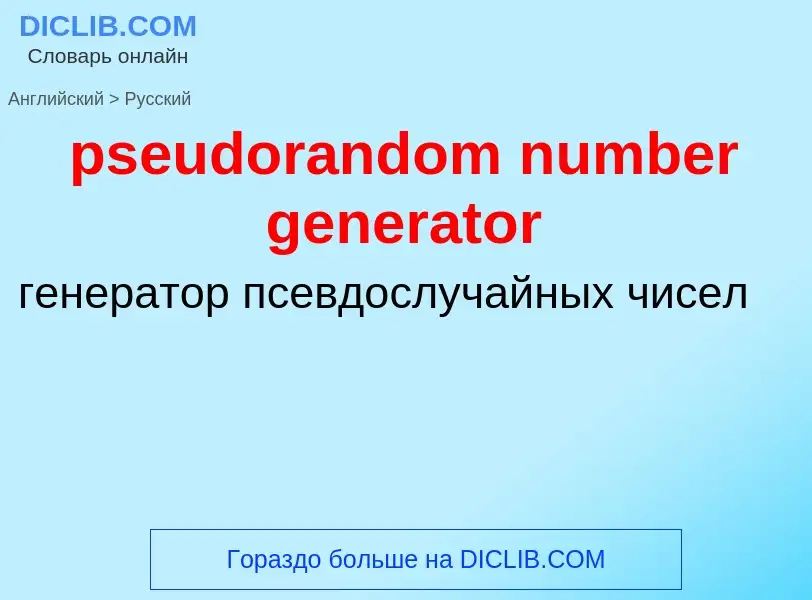Translation and analysis of words by ChatGPT artificial intelligence
On this page you can get a detailed analysis of a word or phrase, produced by the best artificial intelligence technology to date:
- how the word is used
- frequency of use
- it is used more often in oral or written speech
- word translation options
- usage examples (several phrases with translation)
- etymology
pseudorandom number generator - translation to russian
математика
псевдослучайная последовательность
Wikipedia
A pseudorandom number generator (PRNG), also known as a deterministic random bit generator (DRBG), is an algorithm for generating a sequence of numbers whose properties approximate the properties of sequences of random numbers. The PRNG-generated sequence is not truly random, because it is completely determined by an initial value, called the PRNG's seed (which may include truly random values). Although sequences that are closer to truly random can be generated using hardware random number generators, pseudorandom number generators are important in practice for their speed in number generation and their reproducibility.
PRNGs are central in applications such as simulations (e.g. for the Monte Carlo method), electronic games (e.g. for procedural generation), and cryptography. Cryptographic applications require the output not to be predictable from earlier outputs, and more elaborate algorithms, which do not inherit the linearity of simpler PRNGs, are needed.
Good statistical properties are a central requirement for the output of a PRNG. In general, careful mathematical analysis is required to have any confidence that a PRNG generates numbers that are sufficiently close to random to suit the intended use. John von Neumann cautioned about the misinterpretation of a PRNG as a truly random generator, joking that "Anyone who considers arithmetical methods of producing random digits is, of course, in a state of sin."

